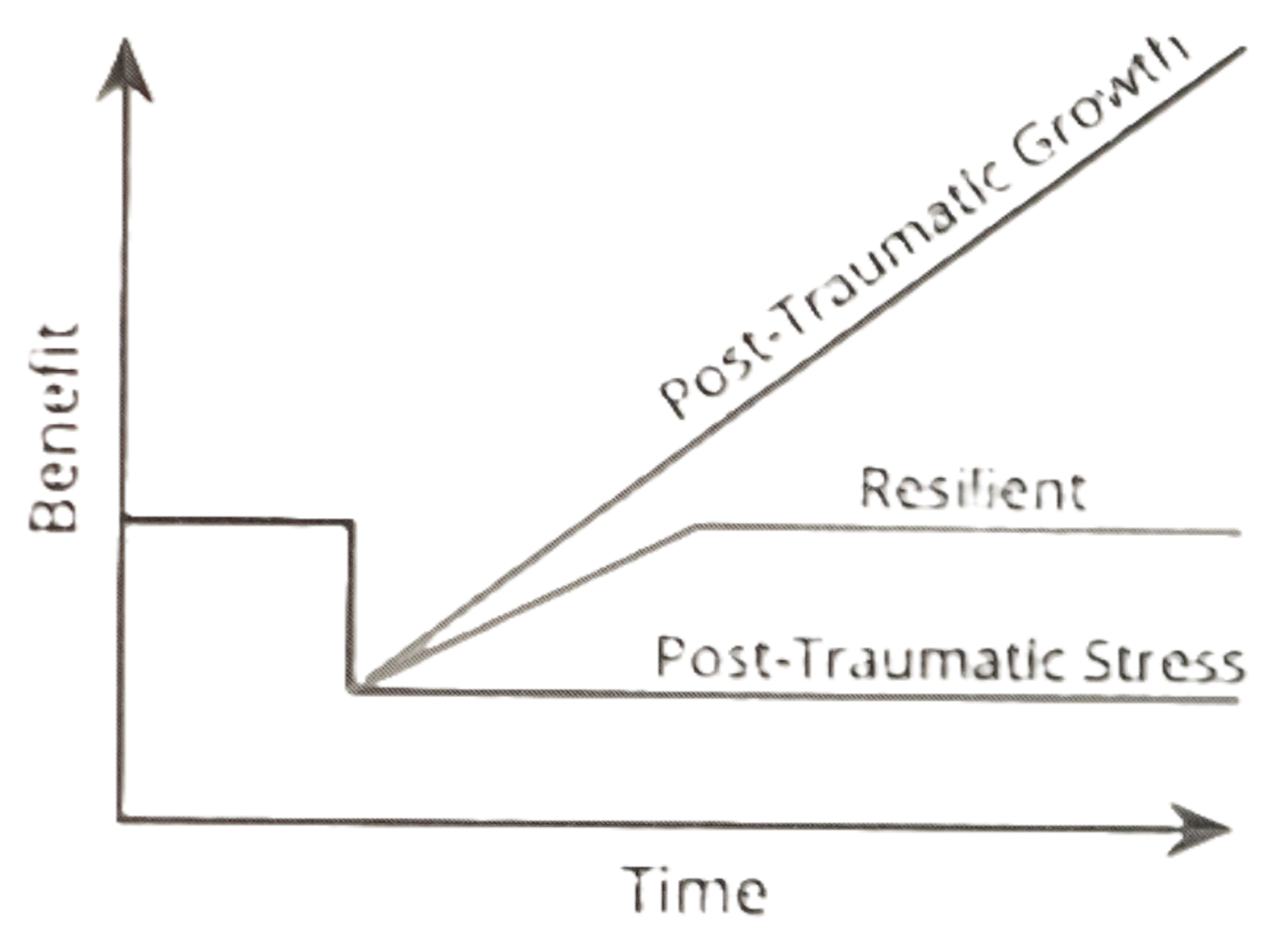- Tel: 07979 35 7979
- simon@maskuk.co.uk
- Bradford, West Yorkshire
Become An Instructor
Become An Instructor
While many of us have heard of PTSD - Post-Traumatic Stress Disorder - few of us are familiar with the concept of PTG - Post-Traumatic Growth - and how it is possible to grow stronger in the aftermath of trauma and difficulty.
Trauma is a distressing emotional experience that overwhelms our capacity to cope. Because of its highly stressful impact, trauma can have lasting effects on our physical and emotional wellbeing.
Whether these lasting effects are beneficial or detrimental depends in part on our response and mindset following the incident.
We often focus solely on the negative consequences of adversity, neglecting the
beneficial changes that can occur simultaneously.
While the trauma itself is never a good thing of course, the way we think about
and reflect on the situation afterwards can lead to unexpected and often positive adaptations.
Research suggests that approximately half of all people experiencing adversity go through some form of post-traumatic growth. Knowing this can help us to get through seemingly never-ending suffering.
The search for growth and learning helps us manage the pain and scars from the
past and ultimately leads us to become more resilient in the future.
Going through PTG does not mean there is no suffering.
We still experience pain, but simultaneously cultivate the ability to create meaning and purpose alongside it. Rather than being a once-off event, post-traumatic growth
is an ongoing process.
To experience PTG, we first need to find ways to manage the inevitable emotional distress that comes with traumatic events. Subsequently, we start to at first simply notice, and then intentionally seek out unexpected positives that are taking place
alongside the painful experience.
Dealing with trauma can be an opportunity to discover hidden strengths and coping mechanisms that we didn't know we possessed. This can build confidence for us to
reach out and handle future adversities.
Another positive change is the cultivation of empathy and compassion. After
trauma, people often re-prioritize relationships and connection, and display more empathy to others.
They become more tolerant and less judgemental as they realize that other people may have 'things going on' too. We find ourselves better able to understand and
support others in their pain.
Post-traumatic growth can also lead to a new sense of possibility. The loss of a spouse can lead to an unexpected sense of independence. Overcoming a violent assault can motivate people to advocate for others in the same boat, and find satisfaction drawing on hidden strengths of teaching, listening or compassion.
It is vitally important to note that these benefits do not justify or condone traumatic events inflicted by others. Nor are they intended to minimize the legitimate distress people feel following trauma.
Nevertheless, being aware of the potential for growth following serious adversity can help us to find new meaning in the seemingly senseless nature of trauma.
So how do we apply these ideas in practice?
Firstly, it is important to express ourselves and talk about our painful experiences at the right time.
Once the initial shock wears off, it is vital we don't 'bottle it up' or try to 'protect people' from hearing about our difficult experiences.
Secondly, we need to try to maintain participation in activities that bring us strength and meaning. When we are suffering, it is easy to give up on these. However, it is especially during these times that they can serve us and foster connection.
Third, seek out support from others and allow other people to offer support to you. Turn your pain into purpose.
Find your community, share your story, and take solace in the perspective that we
usually aren't unique or alone in our suffering.
There are countless inspiring accounts of people across the world who have experienced dreadful circumstances and then shared their stories for how to manage.

Reflect: Understand that post traumatic growth after trauma is possible. Even though it will still be awful early on, and you will still be in Survival mode, keep an eye out for potential benefit that may come alongside the difficulties.
Plan: Reading inspirational stories of figures who have struggled' greatly can help us to realize that setbacks can be overcome and can involve transformation and growth. Go online and find support groups or research the lives of people who have coped with similar experiences to you.
Act: Social support is vital to handling trauma and adversity. Try to find ‘expert companions' who are great listeners, who you can trust to, share intimate details of your experience, and who will be there to support you throughout your recovery journey. If you are not going through trauma right now, invest in your relationships so you may be able to support others through their difficult times.